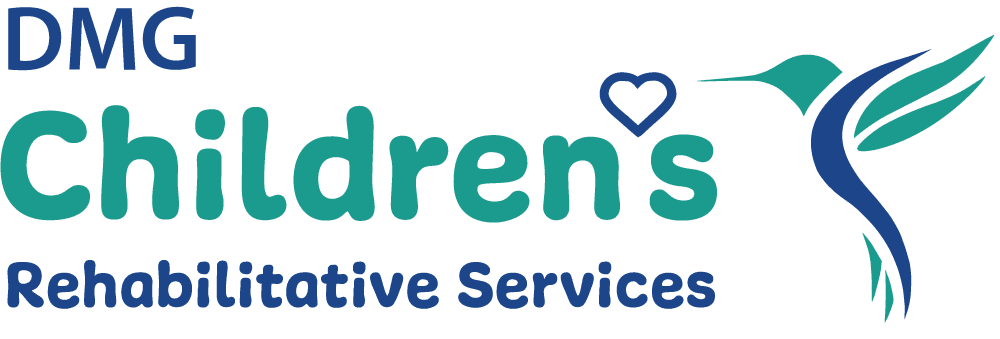How to Protect Your Family from a Measles Outbreak
As of March 6, 2025, the United States has had three measles outbreaks and a total of 222 cases across 12 states- a significant increase when compared to 2024.
As of March 6, 2025, the United States has had three measles outbreaks and a total of 222 cases across 12 states- a significant increase when compared to 2024.
As a child with spina bifida grows, complications associated with the disease may surface and potentially deteriorate some of their physical and mental functional abilities. The goal of treatment is to monitor for these issues and try to prevent them.
Spina bifida is a birth defect in which an area of the spinal column does not form properly, leaving a section of the spinal cord and spinal nerves exposed through an opening in the back.
Gracias por acompañarnos estamos aquí en DMG estamos en el Departamento de Salud Mental y comportamiento y quiero saber qué es lo que tienes ahí platícame Qué significa eso Este es un corazón se es una actividad que hago con mis pacientes
Muy buenas tardes gente la Tricolor aquí me encuentro con arlín en dmg Sears y nos va a estar platicando de su rol aquí tan importante para los niños nombre serlín yo trabajo aquí desde el 2019 mi error es que integrar el cuidado…
Hola qué tal Muy buenos días Nos encontramos otra vez en dmg aquí me encuentro con Gabriela Gabriela Muchísimas gracias por tomarte un tiempo de tu vida tan ocupada aquí y vamos a empezar Qué es una trabajadora social una trabajadora es más una persona para poder ayudar a esas familias agarrar los recursos…
(DMG CRS) Los trabajadores sociales médicos se aseguran de que los pacientes y sus familias tengan acceso a la atención y el apoyo adecuados. Nuestros trabajadores sociales facilitan el tratamiento médico centrado en la familia durante las citas en persona y de telesalud.
DMG Children’s Rehabilitative Services (DMG CRS) registered dietitian, Dominica Dieffenbach, RDN, shares why starting your child off with healthy nutritional habits is critical to their future health.
By Troy Nelson, MD, pediatrician and medical director at DMG Children’s Rehabilitative Services
Whether it’s childhood immunizations or vaccinations for the flu or COVID-19, getting a vaccine is an anxiety-causing process for many children. If your child has special needs or a complex medical condition, getting vaccinations can be more stressful for both you and your child.
Here’s some tips for supporting children with special needs getting vaccinated.
As pediatricians, our goal at DMG CRS’ primary care clinic is to make every child’s appointment positive and comforting. Partnering with parents or guardians is key to this goal and making your child feel confident and safe with their medical providers. We’re here to listen and support you in managing your child’s health and wellness.
This article was originally published by dmgaz.org on August 2, 2022
By Pamela Murphy, MD, pediatrician in the Spina Bifida Clinic at DMG Children’s Rehabilitative Services

As a pediatrician, I am asked frequently about childhood vaccinations. Are they safe? Do they cause one disease while trying to prevent another? As a parent or guardian, it’s our responsibility to provide safe care for our children and asking questions and getting the facts from credible sources are part of that responsibility.
U.S. public health officials and physicians have been combating misconceptions about vaccine safety for more than twenty years. Despite these efforts, childhood immunization rates have fallen in the past two decades resulting in resurgences of vaccine-preventable diseases such as whooping cough (pertussis) and measles. For example, in 2010, California saw more cases of whooping cough than any year since 1947, according to research published by the American Academy of Pediatrics.
August is Immunization Awareness Month. Let’s look at what childhood vaccinations are recommended when and address the most common misinformation about childhood vaccinations.
The Centers for Disease Control and Prevention (CDC) has easy to review children’s vaccines schedules by age group on their website. All the vaccinations listed below are available at DMG CRS’ primary care clinic.
In addition to any vaccines missed that were recommended during early childhood, the CDC recommends the following vaccines for kids ages 7-18:
If your child has certain health conditions that put them at increased risk for serious diseases, your pediatrician may also recommend the following vaccinations be administered:
The CDC also recommends children ages six months and older receive the COVID-19 vaccination, and children ages five and older also get the booster. The COVID-19 vaccination is not available at DMG CRS. For more information on COVID-19 vaccinations for children, including locations providing these vaccinations, visit the Maricopa County Public Health website.
According to PublicHealth.org, the following are the top three myths about childhood vaccinations.
Myth #1: Vaccines increase the risk of autism.
This hypothesis originated in 1997 from study by a British surgeon who concluded that the MMR vaccine was increasing autism in children in the United Kingdom. The article “has since been completely discredited due to serious procedural errors, undisclosed financial conflicts of interest, and ethical violations.” The physician author lost his medical license, and the paper was retracted.
Myth #2: Infant immune systems can’t handle so many vaccines.
The cells in the immune system are constantly being replenished, making it near impossible for a baby’s immune system to be overwhelmed by immunizations. In fact, babies are exposed to numerous bacteria and viruses every day; vaccines are minor in comparison.
Myth #3: Natural immunity is better than vaccine-acquired immunity.
While in some cases, catching a disease and getting sick (i.e., “natural immunity”) results in a stronger immunity to the disease than a vaccination, the risks outweigh the benefits. For example, if a child were to catch the measles, they would face a one in 500 chance of death from symptoms; in contrast, having a severe allergic reaction to the MMR vaccine is less than one-in-a-million according to the CDC.
As families travel more, especially internationally, the risk of contracting vaccine-preventable diseases increases. Even if the disease is not prevalent in the United States, it may be in other countries. COVID-19 gave us a strong example of how quickly a virus can spread from one continent to the next.
DMG Children’s Rehabilitative Services’ (DMG CRS) primary care clinic specializes in medical care of all children. We know that, especially if your child has a complex condition, getting vaccinations can be challenging and concerning. Your child may have increased anxiety resulting from their medical conditions making getting immunizations even more scary for them. You may have questions about how vaccinations fit into your child’s therapy plan. Our pediatric primary care providers are here to answer your questions and provide compassionate, experienced, and individualized care to support the health of your child and your family.
Article originally published by dmgaz.org on August 1, 2022
